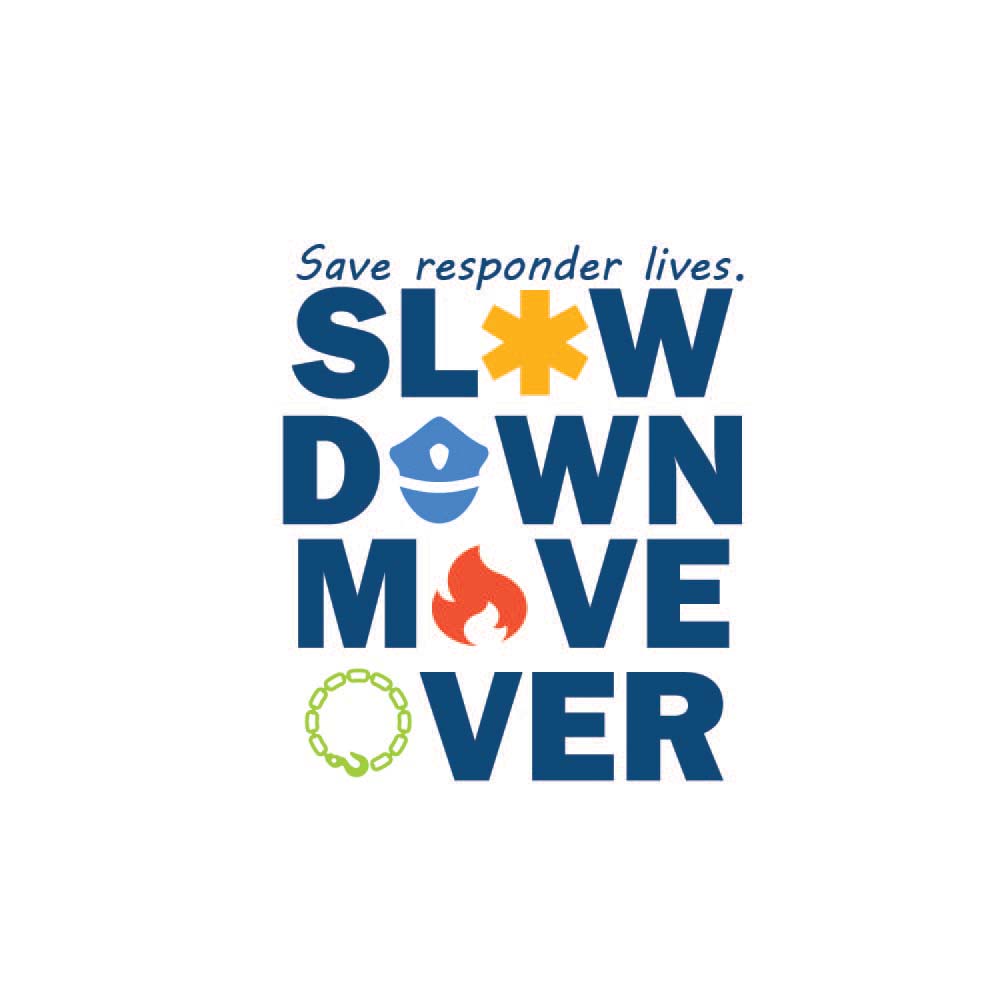by Anna Wingard, Business Operations Manager, Wingard Towing Service.
 50 states have “slow down move over” laws mandating motorists to reduce speed and safely change lanes when approaching flashing emergency vehicle lights. This is a collective effort to reduce secondary collisions on our nation’s highways by giving those working on the roadways extra space to perform job duties. According to the National Highway Traffic Safety Administration, fewer than 30% of Americans are aware of these laws.
50 states have “slow down move over” laws mandating motorists to reduce speed and safely change lanes when approaching flashing emergency vehicle lights. This is a collective effort to reduce secondary collisions on our nation’s highways by giving those working on the roadways extra space to perform job duties. According to the National Highway Traffic Safety Administration, fewer than 30% of Americans are aware of these laws.
The Move Over law originated in Lexington, South Carolina in 1996 when James Garcia, a paramedic, responded to a roadway collision and was struck by a vehicle passing the emergency scene. Oddly, Garcia was listed as contributing to the collision as the at-fault party causing the secondary wreck. Thus, the Move Over law was created in South Carolina to protect emergency vehicles and their respective operators while working on public roads by mandating safer driving habits, specifically slowing down and moving over when approaching an emergency scene.
Before May 2024, tow trucks were covered under this South Carolina law, but their respective tow truck operators were not. Odd, right? According to the Centers for Disease Control and Prevention (CDC), the towing industry is 15 times deadlier than all other private industries combined. This translates into more tow truck driver deaths while working on public roadways than firemen, EMS, and police combined, according to the South Carolina Traffic Incident Management organization.
This is personal for me. My husband, Greg, is a third-generation tow operator and now manages Wingard Towing Service. Many years ago, he was hit by a distracted driver. The vehicle he was actively loading became airborne as a speeding vehicle drove up the flatbed tow truck. Greg can recount numerous near-miss incidents in his 20+ years as a tow truck operator. Back in 2008, one of Wingard Towing Service’s tow truck operators was killed while loading a wrecked vehicle in response to a South Carolina Highway Patrol wrecker rotation call.
I, along with several other advocates, recently succeeded in changing South Carolina legislation to reduce the injury and death rate statistics in the towing industry. I realized that if I wanted to reduce injuries and death incidents within my own business, I would have to utilize my role as the President of the Towing and Recovery Association to make positive changes for all towing businesses in South Carolina. I recently partnered with Representative Chris Wooten, District 69 of Lexington County, to ensure that tow truck operators were fully covered under the Move Over law. Again, tow trucks were covered under the Move Over Law but not tow truck operators. Therefore, if a tow truck operator was struck but not the tow truck, the police officer responding at the scene could not cite the at-fault driver with a ticket for failing to slow down and move over.
Representative Wooten was quick to support the towing industry with House Bill 4436 which ensured that both tow trucks and their respective operators were included in the Move Over law along with fire trucks and firemen, EMS vehicles, and paramedics/EMTs, as well as police vehicles and policemen/police women. Wooten, a former South Carolina State Trooper, is very familiar with roadside dangers. Other notable Lexington County lawmakers at the State House who held significant roles in ensuring House Bill 4436 was passed into law include Representatives Paula Rawl Calhoun, District 87, Micah Caskey, District 89, Cal Forrest, District 39, and R.J. May, District 88.
Communities across the United States observe National Slow Down Move Over Day on the third Saturday of October. Now that you are aware of the Move Over law and its origins, ask yourself: “Have I been slowing down and moving over when I see flashing lights? And, am I doing this for ALL emergency flashing lights, not just red and blue? Tow trucks display amber and white flashing alternating lights, fire trucks display red lights, and police vehicles display blue lights. If you cannot change lanes safely, please significantly reduce your speed; you may save a life.

